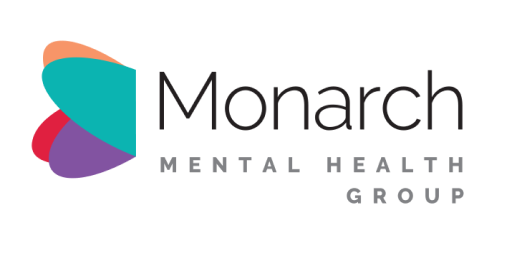Post-Traumatic Stress Disorder (PTSD) can deeply impact your everyday life—changing how you sleep, think, feel, connect with others, and respond to stress. If you’ve already tried therapy or medication with limited success, you’re not alone. Many Australians living with PTSD are now exploring TMS therapy for PTSD as an innovative treatment option when other approaches haven’t provided relief.
Here’s a practical and informative guide to help you understand what TMS therapy is, how it works, how to treat PTSD using TMS, and whether it could be the right path for you or someone you care about.
How Does PTSD Affect the Brain?
To understand why TMS might help, it’s important to know how PTSD affects the brain. PTSD causes hyperactivity in the amygdala (which controls fear responses), reduced activity in the prefrontal cortex (which helps with emotional regulation), and changes in the hippocampus (which manages memory and learning).
These changes can make it difficult for people with PTSD to feel safe, calm, or emotionally balanced—even long after the traumatic event has passed. TMS therapy aims to restore normal function in these key brain areas by encouraging healthy neural activity.
A recent study showed that deep TMS targeting these regions significantly reduced PTSD symptoms in comparison to a placebo group.
How Effective Is TMS Therapy for PTSD?
Research shows that TMS can be highly beneficial for people with treatment-resistant PTSD. A 2023 meta-analysis found that patients who received TMS experienced significant improvements in symptoms such as anxiety, intrusive thoughts, and emotional numbness compared to those who received sham treatment.
Another 2023 study found that combining TMS therapy with exposure-based psychotherapy led to better results than therapy alone. This suggests that TMS can also enhance the benefits of traditional psychological approaches.
What to Expect During Treatment
TMS is delivered through daily outpatient sessions. Here’s a typical outline of what treatment looks like:
- Sessions last 20–30 minutes
- Usually five sessions per week for four to six weeks
- You’re fully awake and can return to normal activities straight after
Some people feel a tapping sensation or mild headache during treatment, but these side effects are usually brief and manageable.
Who Is TMS Therapy Suitable For?
TMS therapy may be a valuable treatment option for individuals who are living with PTSD and have not found relief through traditional approaches such as medication or talk therapy. It is particularly helpful for people experiencing treatment-resistant PTSD and depression (where symptoms persist despite multiple attempts at treatment), anxiety, and for those who are unable to tolerate antidepressant side effects.
You may be a suitable candidate for TMS therapy for PTSD if:
You have a confirmed diagnosis of PTSD
This includes individuals with symptoms such as flashbacks, hypervigilance, emotional numbness, nightmares, or anxiety linked to traumatic events. A mental health professional will typically complete a thorough assessment before treatment begins.
You’ve tried at least one evidence-based treatment without success
Many people come to TMS after undergoing antidepressant medication, trauma-focused cognitive behavioural therapy (CBT), EMDR, or other forms of psychotherapy without significant improvement.
You are looking for a non-invasive, medication-free option
TMS is ideal for people who are sensitive to medication side effects, prefer to avoid pharmaceuticals, or who have medical reasons to seek alternative treatments.
You can commit to a regular treatment schedule
TMS requires multiple sessions each week for several weeks. Suitable candidates are those who can reliably attend appointments and engage with the treatment plan.
You don’t have medical contraindications
For safety reasons, a comprehensive health history will be reviewed to ensure you do not have any conditions that might interfere with treatment, such as certain types of metal implants or seizure disorders.
TMS is often considered after a thorough mental health assessment, and suitability is determined based on your individual history, medical background, current symptoms, and treatment goals.
Who Is TMS Therapy Not Suitable For?
While TMS is considered safe and well-tolerated for many people, it is not appropriate for everyone. It may not be recommended in the following situations:
You have certain types of metal implants in or near your head
This includes metal plates, cochlear implants, stents in the neck or brain, or deep brain stimulators. These may interact with the magnetic fields used in TMS and pose a safety risk. Dental fillings and braces are typically safe, but all devices will be reviewed during screening.
You have a history of epilepsy or seizures
Although rare, TMS can induce seizures in a small number of people. Individuals with epilepsy or a known seizure disorder may be advised to avoid TMS unless cleared by a neurologist.
You have certain neurological conditions
Conditions such as brain tumours, traumatic brain injuries (TBI), or active neurological disease may be considered contraindications depending on severity and location. A detailed neurological history is needed to assess suitability.
You are unable to sit still or tolerate stimulation
People with severe movement disorders, or those who may not tolerate the scalp sensations or noises from the TMS device, might struggle with treatment. Special considerations may be made on a case-by-case basis.
You are experiencing unmanaged psychosis or mania
If PTSD co-occurs with a condition such as schizophrenia or bipolar disorder in a manic state, TMS may not be appropriate until the symptoms are stabilised.
If you’re unsure whether you’re a suitable candidate for TMS therapy, the best step is to speak with a psychiatrist or mental health team experienced in TMS assessment. At Monarch Mental Health Group, our clinicians provide detailed pre-treatment evaluations to ensure every person receives safe and appropriate care tailored to their needs.
How to Treat PTSD: Is TMS Enough?
There’s no single answer for how to treat PTSD, and most people benefit from a combination of therapies. TMS is not a cure-all, but it can be a valuable part of a comprehensive treatment plan—especially for those who haven’t improved with other treatments.
Many clinicians recommend TMS alongside therapy and, where appropriate, medication. Others may use it as a next step when previous treatments haven’t been effective.
How to Support Someone With PTSD
If someone you care about is living with PTSD, knowing how to support someone with PTSD can make a real difference. Encourage them to seek professional help, be patient with their healing journey, and avoid minimising their experience.
Offering practical support—like helping with appointments or simply listening without judgement—can go a long way. Let them know that effective, research-backed treatments like TMS exist and that recovery is possible.

Considering TMS? Monarch Mental Health Group Can Help
At Monarch Mental Health Group, we specialise in providing evidence-based mental health services across Australia, including TMS treatment for PTSD. Our psychiatrist-led teams offer comprehensive assessments, deep TMS and repetitive TMS, trauma-informed care, and ongoing support—all tailored to the individual.
We’re proud to deliver cutting-edge treatments supported by research from the Monarch Research Institute, and we prioritise your recovery every step of the way. With clinic locations across NSW, Queensland and Victoria, accessing treatment is easier than ever.
If you’re wondering how to treat PTSD more effectively or how to support someone with PTSD, don’t wait. Contact us today to find out if TMS therapy is the right step forward. A referral from your GP or psychiatrist is required for Medicare rebates.
FAQs
What is TMS therapy and how does it work for PTSD?
TMS therapy uses magnetic pulses to stimulate specific areas of the brain involved in mood and emotion regulation. It’s non-invasive and drug-free, commonly used for conditions like depression and PTSD. At Monarch Mental Health Group clinics, we offer both repetitive and deep TMS across our clinics in NSW, Victoria, and Queensland. Speak with our team today to find out if it’s suitable for your treatment plan.
Is TMS therapy safe?
TMS is considered safe for most people and is approved in Australia for depression and PTSD. Side effects are typically mild, such as scalp discomfort or headache. At our mental health clinics in Australia, our psychiatrist-led teams assess each patient’s medical history to ensure safety before starting TMS. Reach out to one of our clinics to book a consultation.
Who is eligible for TMS therapy for PTSD?
TMS may be suitable if you’ve been diagnosed with PTSD or treatment resistant depression and haven’t responded to standard treatments like medication or therapy. It’s also a great option for those seeking non-drug alternatives. Our experienced psychiatrists at Monarch Mental Health Group will guide you through a full assessment to determine eligibility. Call us or visit our website to book your initial consultation.
Who should avoid TMS therapy for PTSD?
TMS for PTSD may not be suitable if you have metal implants near the head, a history of seizures, or certain neurological conditions. Our clinics conduct a thorough screening process to ensure TMS is safe for you. Monarch Mental Health Group provides detailed assessments before recommending any treatment. Get more information today or speak to your GP about a referral.
Does Medicare cover TMS for PTSD?
Currently, Medicare rebates are available for TMS in cases of treatment-resistant depression. Coverage for PTSD depends on individual circumstances and provider discretion. Our teams in Brisbane, Sydney, or Melbourne can guide you through your funding and billing options during your assessment. Monarch mental health clinics also support private health and self-funded patients. Contact us to learn more about costs and referral requirements.
.png)
About The Author
Dr Ted Cassidy
Dr. Ted Cassidy is a psychiatrist and co-founder of Monarch Mental Health Group in Australia, which provides innovative treatments for depression, PTSD, and anxiety. Monarch Mental Health is recognized as Australia's first outpatient clinic offering assisted therapy and is the largest provider of outpatient magnetic stimulation therapy.

